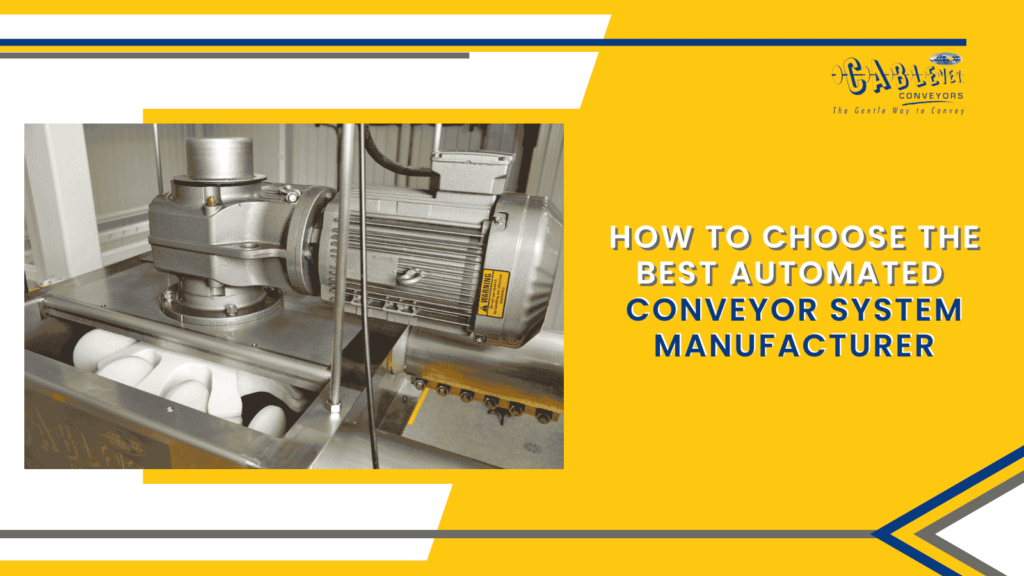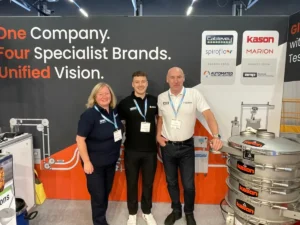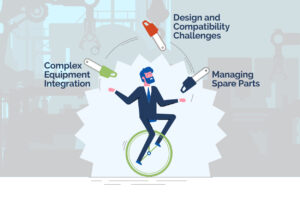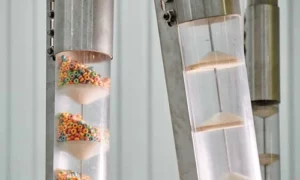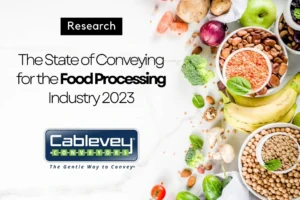Automation is the future of manufacturing, and it has arrived. If you haven’t yet invested in an automated conveyor system for your food processing plant, you are missing out. It’s vital to learn how to choose the best automated conveyor system manufacturer when it comes time to purchase your first (or another) automated conveyor system. It’s paramount to select a manufacturer that will provide you with a quality product and excellent conveyor installation service.
What Are the Benefits of Automated Conveyor Systems?
Some of the most significant benefits of an automated conveyor include:
- Increased efficiency and productivity,
- Reduced labor costs,
- Increased accuracy and consistency of product output,
- Increased safety for employees, and more.
Should Your Transfer Operations Be Automated?
Before making a decision, it’s important to try and answer some crucial questions, such as which of your transfer options should be automated. The most important factors to take into account when considering whether or not to automate transfer operations are product volume and product life cycle.
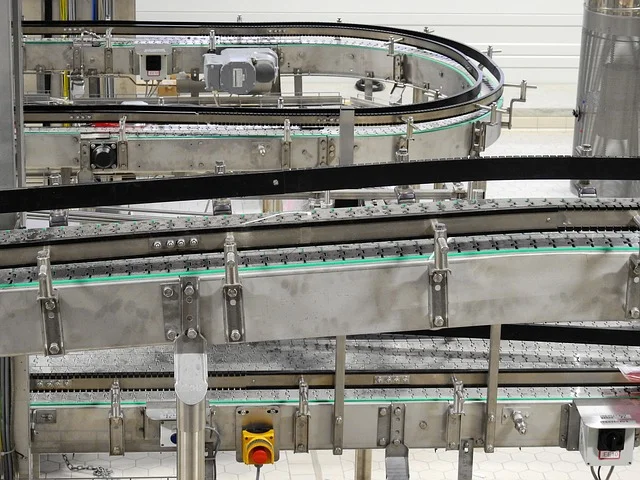
What Options for Automating Your Transfer Options Are Available?
Before looking for manufacturers, have a good understanding of which type of automation will best suit your needs. In total, there are four different options for automating transfer operations:
- Full automation for products with a long life cycle and high production volume.
- Adaptive automation for products with a long life cycle but low production volume. This is less of an investment than full automation since you can gradually add features as needed.
- Flexible automation for products with a short life cycle and high production volume. “Flexible” means that the system can be easily reconfigured to accommodate changes in product design.
- Manual operation for products with a short life cycle and low production volume.
Is It Better to Stick To Manual Operation or Invest in Automatic Conveyor System?
If your products’ expected volume and life cycle don’t justify the investment, you may be better off sticking with manual operation. At the same time, you should be aware of other potential benefits of automation that might not be immediately obvious. Automating your transfer operations can free up employees to do other tasks and improve safety in the working environment as well.
For example, if you automate the transfer of powdered substances in a food processing facility, the risk of employees inhaling hazardous dust particles will be eliminated. If, after all of this, you’ve decided that automating transfer operations is the right choice, then start looking for manufacturers.
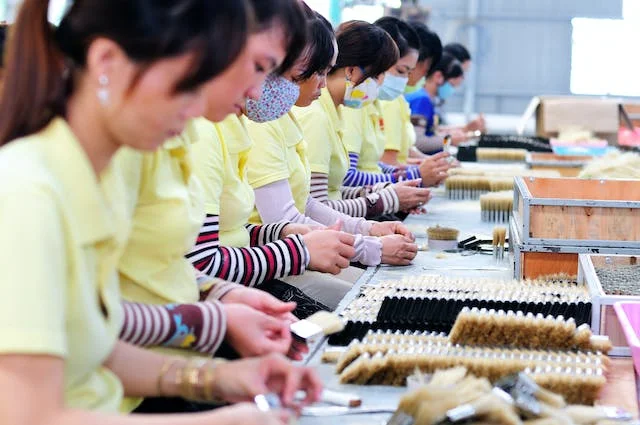
Find the Right Conveyor System Type
Not all manufacturers make all types of automated conveyor systems, so start by narrowing down your search to those that make the type of system you need. Before, conveyor belt systems were mostly used for horizontal transportation; now, there are all sorts of different types of conveyors available on the market. Some of the conveyor solutions available are:
- Pneumatic conveyor systems,
- Screw conveyor systems,
- Bucket elevators,
- Vibrating conveyors.
Product Requirements Need to Be Considered When Seeking Conveyor Technologies
Your product and process requirements will determine the type of conveyor technology that should be chosen. Here are some product requirements that should be taken into account:
- Type of product – Is your product dry or wet? Hot or cold? Fragile or tough? Free-flowing or non-free-flowing?
- Product size – What are the dimensions of the product?
- Product shape – Are there any restrictions on the shape of the product? Does it protrude in any way?
- Product weight – How much does the product weigh? Is its weight likely to change over time?
- Product fragility – Is the product likely to break or crumble if dropped?
Bear in Mind That Manufacturing Process Requirements Are Also Vital
Ask yourself the right questions to determine what type of conveyor engineering would be ideal for a food processing facility. We recommend manufacturing process requirements below be taken into account:
- Transfer distance – How far does your product need to be transported?
- Transfer path – Does the product need to travel in a straight line, or can it travel in curves or loops?
- Transfer speed – How fast does the product need to be transported?
- Environment – What type of environment does your product need to be transported in? Will it be hot, cold, dusty, or wet?
- Footprint – How much space is available for the material handling system?
If you need to transport fragile materials (such as nuts, snack foods, pet food, and similar) in a facility with relatively limited floor space, your best bet would be tubular cable and disc conveyors. However, if workers need to operate on the product or material directly next to the conveyor, then choosing belt conveyor manufacturers is better. Once the solution is determined, look for qualified manufacturers.
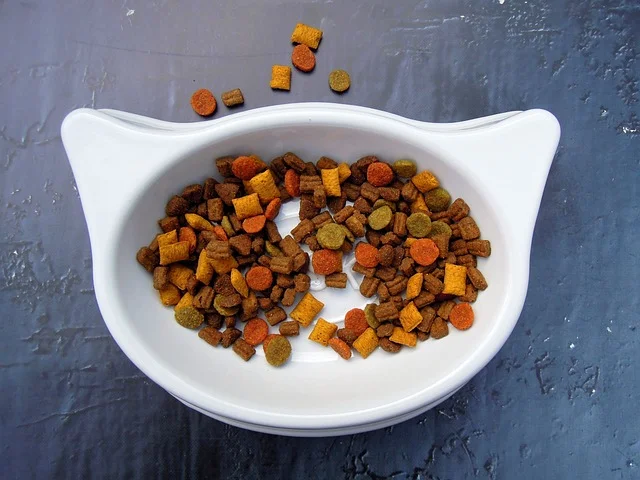
How to Choose the Best Automated Conveyor System Manufacturer – Ask Crucial Questions
With the search narrowed down to a few manufacturers, ask questions to determine which one is the best fit. Remember that it will take multiple calls and perhaps even in-person visits to fully understand each manufacturer’s capabilities.
Here are some important questions to ask:
- What type of conveyor equipment and controls are suitable for materials that need to be conveyed – While the right type of system for your needs may be determined, the chosen manufacturer should be able to help with confirming that and offer additional advice in terms of the conveyor’s capacity (if they have multiple options), conveyor layout, and so on.
- Do they offer material testing – A manufacturer that truly cares about their products and their customers will offer material testing to ensure that their system is a perfect fit for the customer’s company.
- How easy is it to maintain their conveyor systems – According to a survey conducted by Cablevey in partnership with Ascend2, a staggering 54% of food processing facilities cite cleaning conveyor belts and maintenance as one of the greatest challenges of conveying materials. Ask about how easy it is to access different parts of the conveyor’s system for cleaning and maintenance purposes and whether or not this can be an automated process.
- What is their lead time for an order similar to yours – Don’t be left waiting for months while the system is being built. Most conveyor systems manufacturers have a lead time between 6 and 12 weeks, depending on the system’s complexity.
- What is their service and support like – No matter how good a product is, things can and do go wrong. When they do, it’s best to rely on the manufacturer for quick and effective service and support. Make sure to inquire about their warranty terms and what kind of support they offer after the sale. Additionally, it would be a good idea to search online for reviews of the manufacturer’s customer service.
- How quickly can a quote be received – The speed of their response, not concerning to the quote but in general business communication as well, is a good indication of how much they value their potential customers and whether or not the entire business transaction will run smoothly.
A Vital Tip – Be Thorough in Your Research
Purchasing a brand new conveyor for a food processing facility is a big investment, so it’s important to do your due diligence and thoroughly research all options before selecting one. Asking the right questions is only the beginning – it’s necessary to visit the manufacturer’s facility (if possible) and get a first-hand look at their operation.
This will give you a much better idea of the type of business you’re dealing with and whether or not they are truly invested in providing the best possible products and services to their customers. Don’t limit yourself to only one or two manufacturers – the more options there are, the better. In the end, the goal is to find a conveying system that is a perfect fit, and that will improve operations and be useful for years to come.
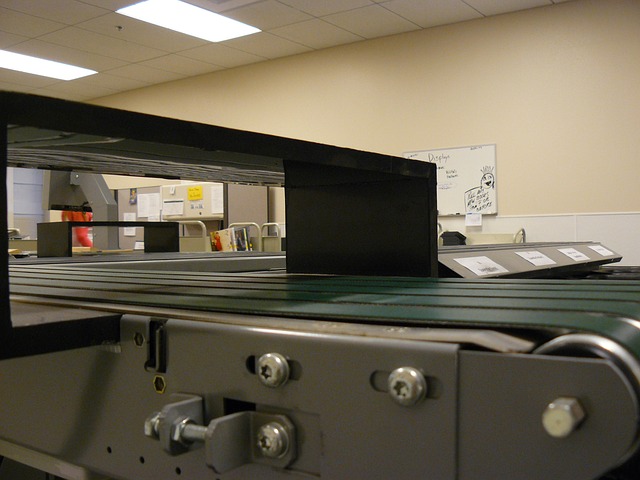
Are You Ready to Choose the Best Manufacturer?
Automated conveyors are becoming the norm in food processing plants as they offer a more efficient and cost-effective way to move materials. When looking for a brand-new automated system for a facility, do some research and choose a trustworthy manufacturer.
Asking the right questions, visiting the manufacturer’s facility (if possible), and reading online reviews are all good ways to vet potential candidates. The goal is to find a system that meets specific needs and will be a valuable addition to the food processing plant.Are you transporting fragile materials such as breakfast cereals, nuts, coffee beans, snack foods, frozen food, and similar? Contact Cablevey Conveyors and get a quote for a tubular conveying system. Our team will determine the best type of system for your needs and budget.

